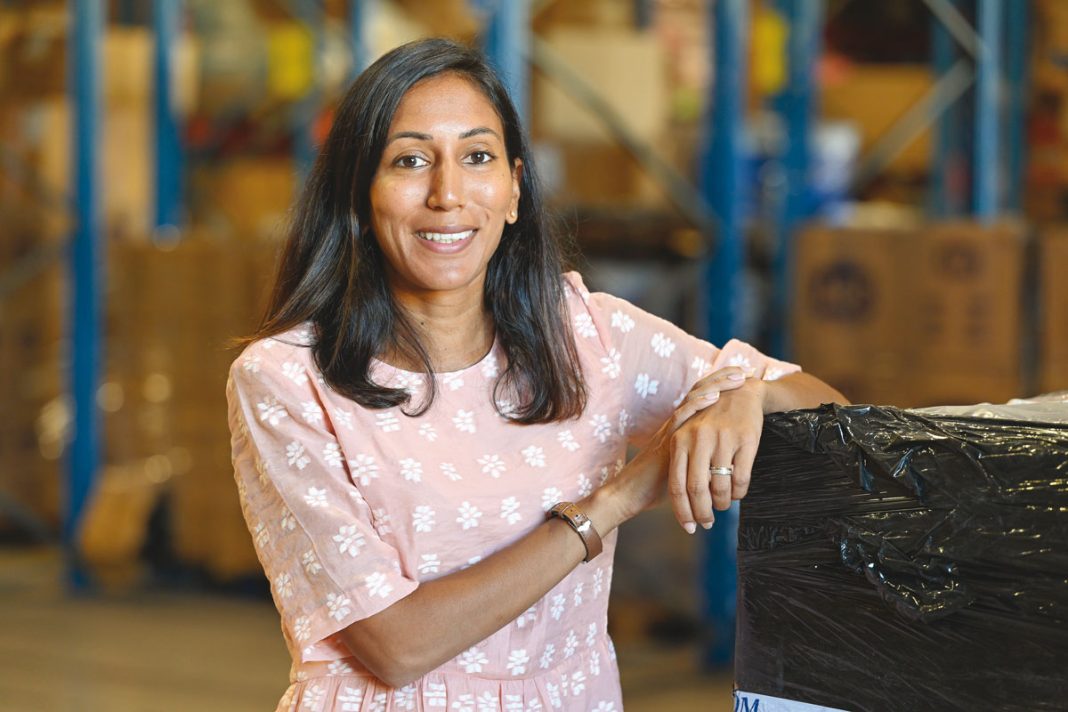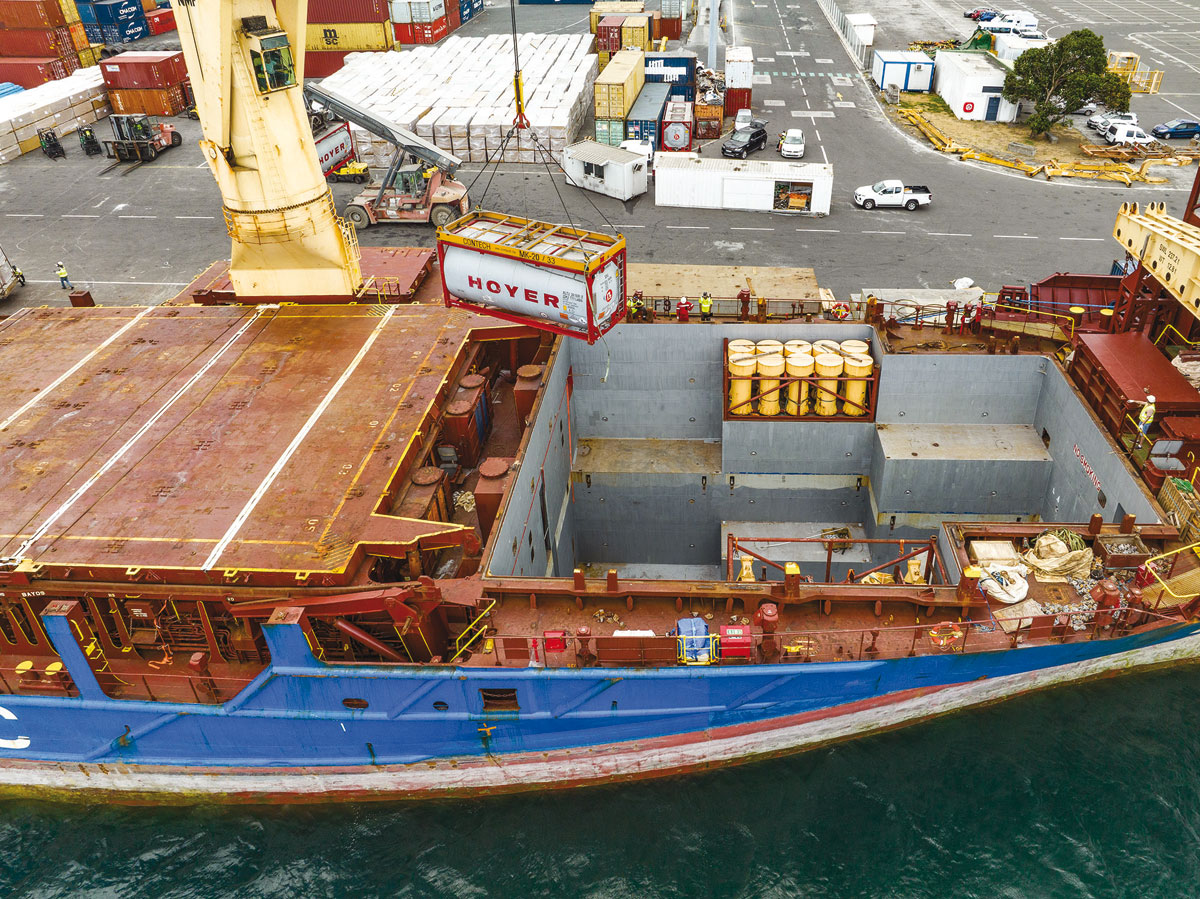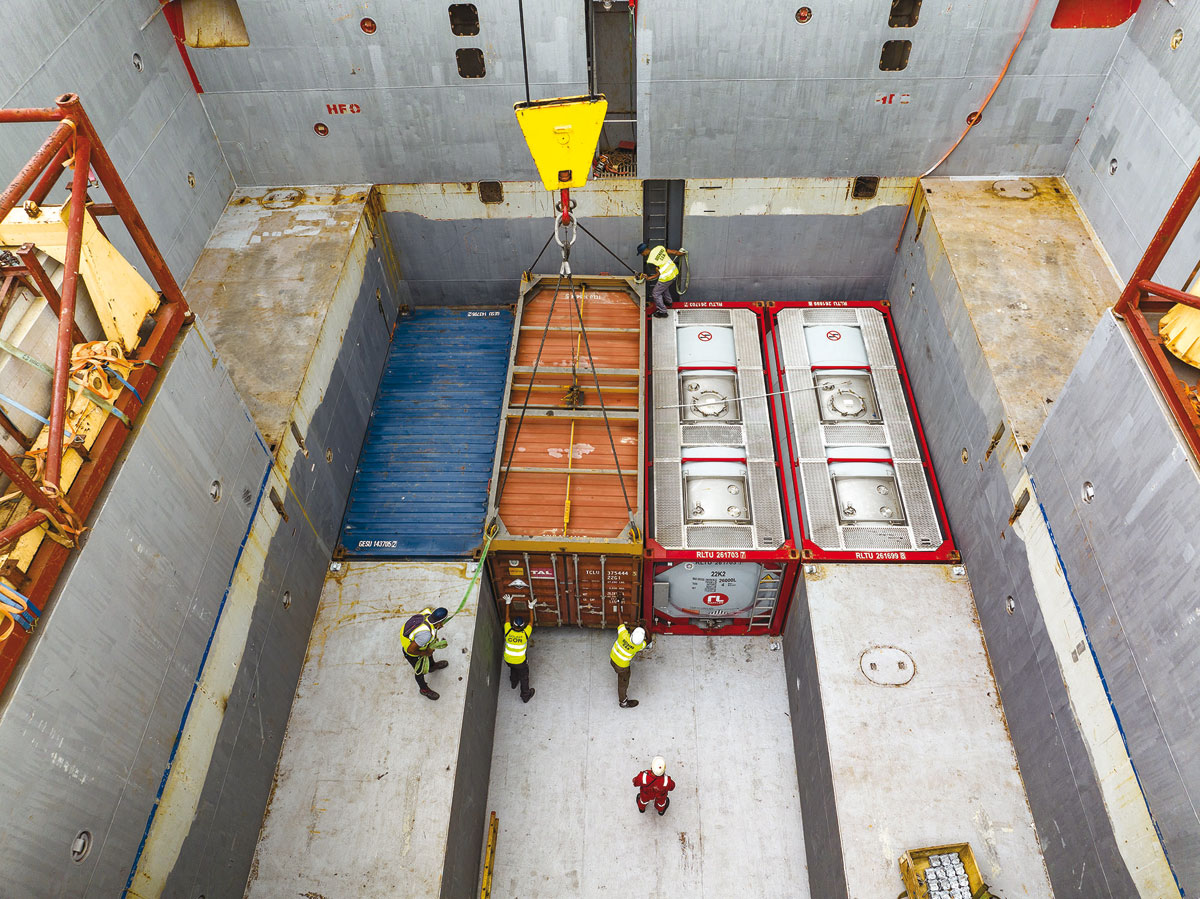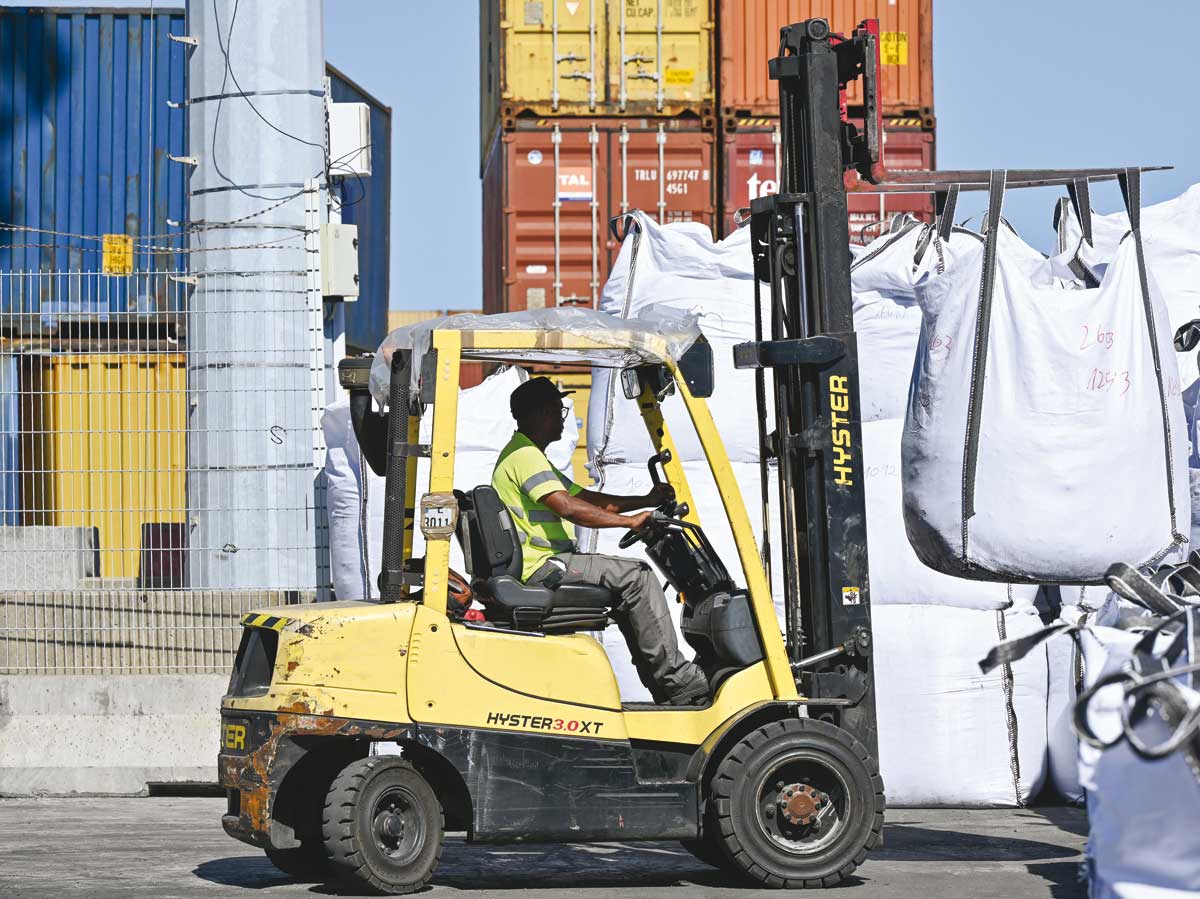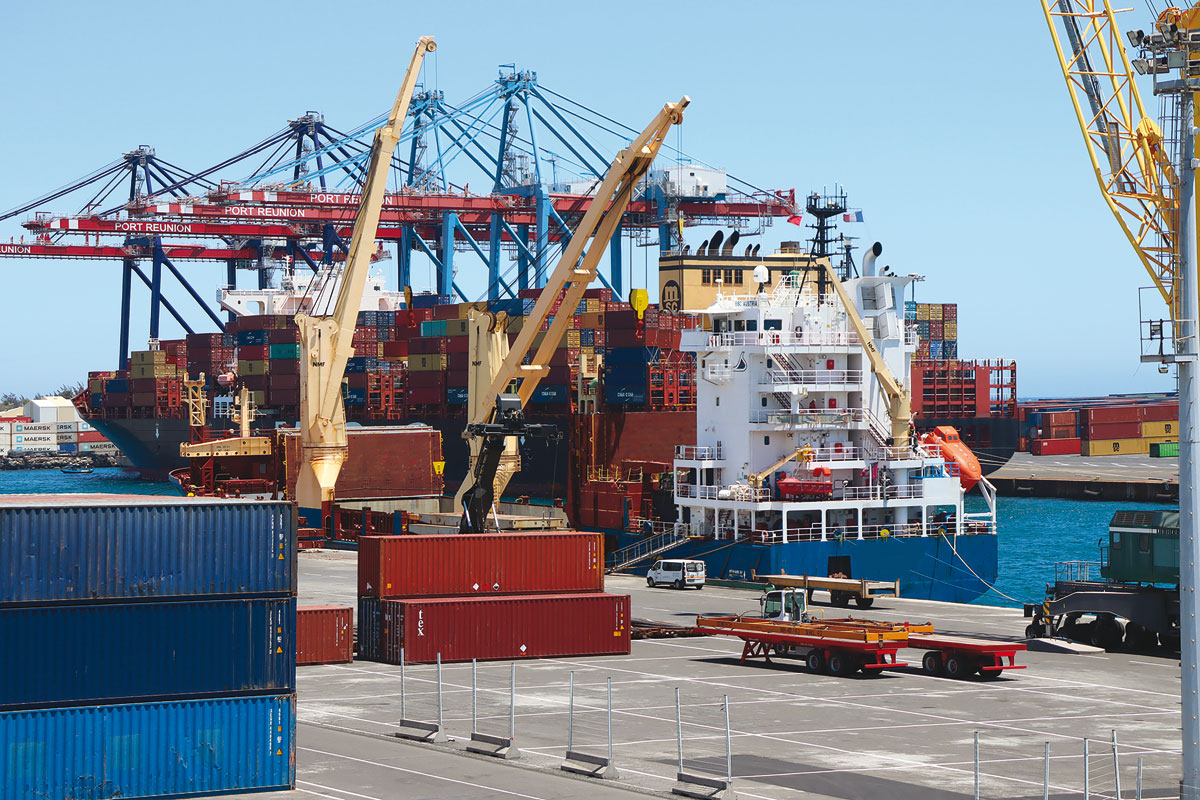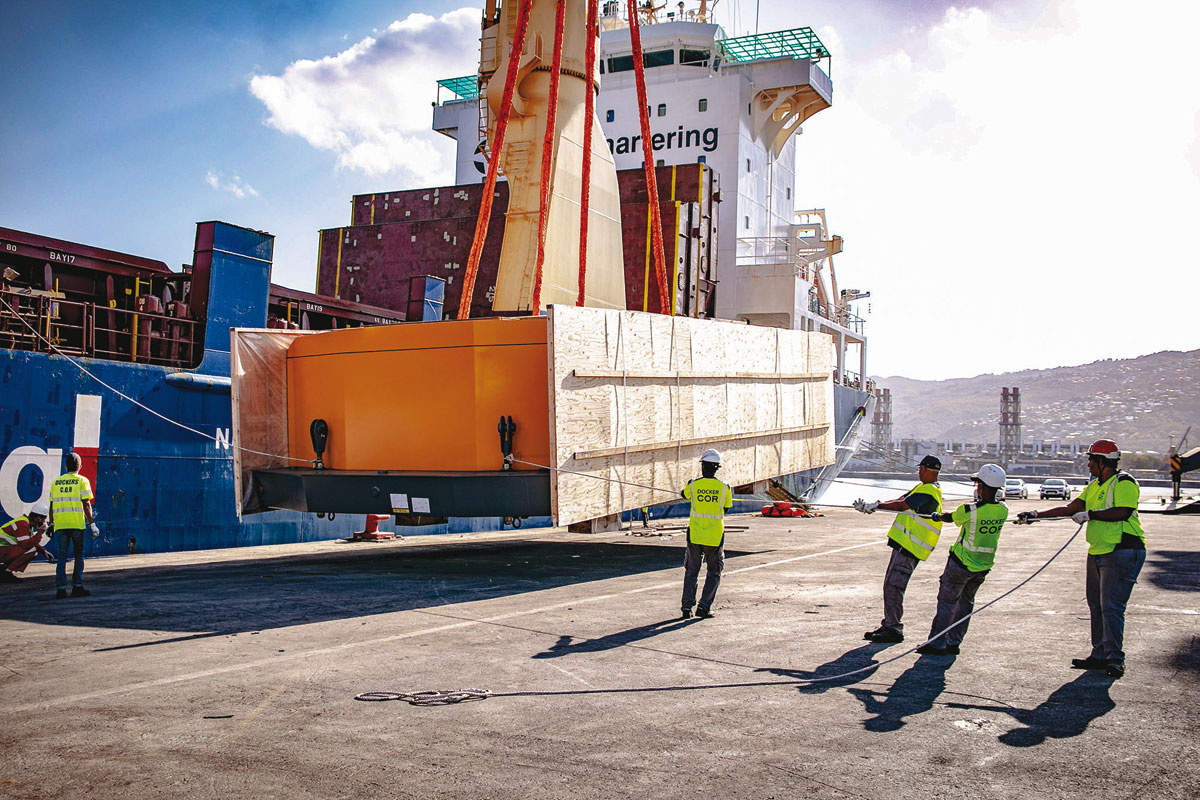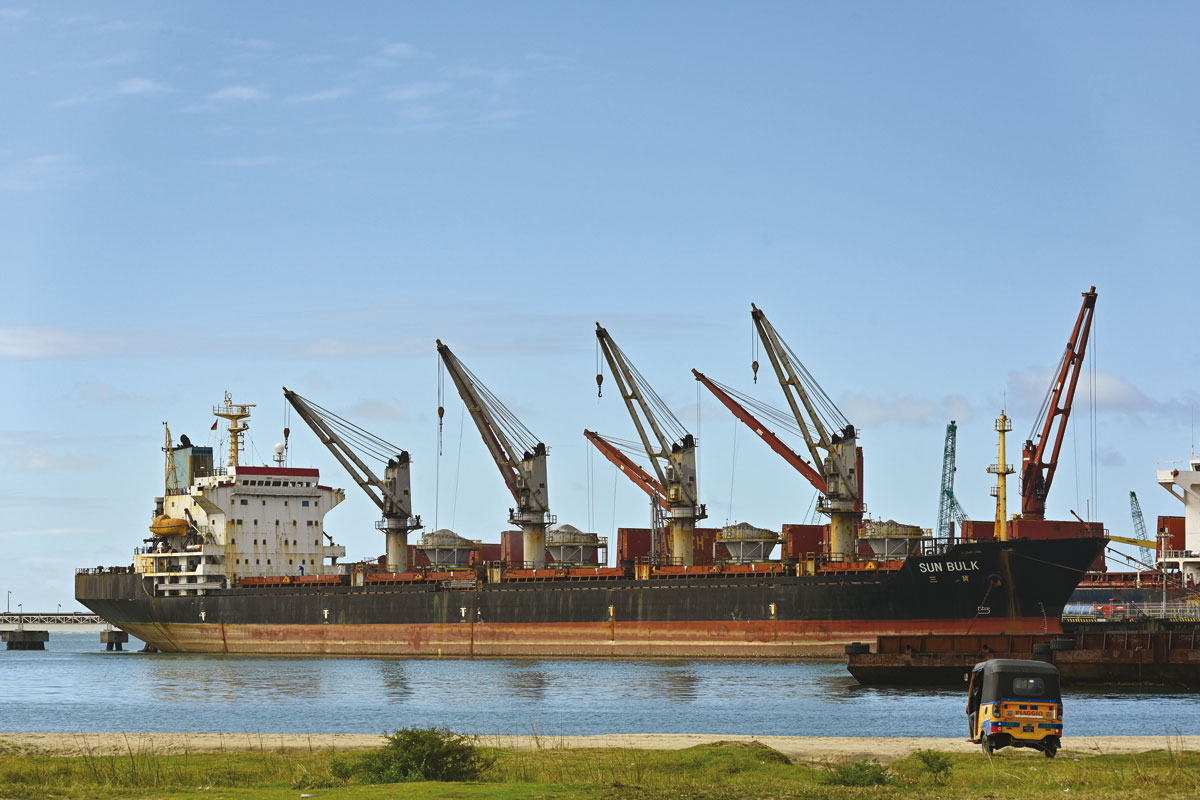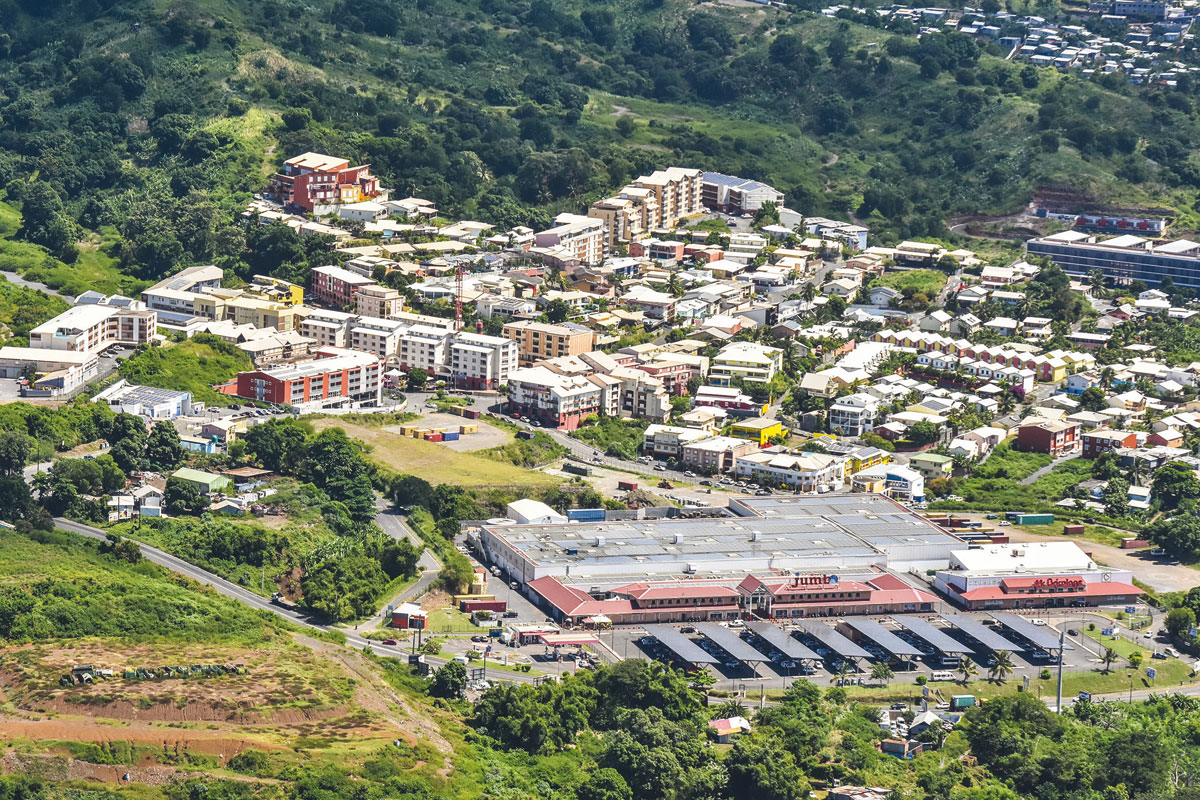Known in the Reunion maritime professional community as the conventional transport company (non-containerized, mainly the delivery of construction materials and equipment), Sea Union currently connects Europe and the Indian Ocean islands every two months. The ships it charters make a stopover, in an order which may vary depending on the goods transported, in Madagascar, in the Comoros, in Mayotte, in Mauritius and Reunion. Mer Union’s agent is Steinweg France/Indian Ocean, who manages boat charters, deposit at loading and unloading ports and coordinates handling operations. Christelle Goinden-Flambard is in charge of development in Reunion and Mayotte. It's this shipping line, subsidiary of the Dutch Steinweg group, that we must ship, since 2022, loadings of hazardous waste to mainland France, while the large regular airlines, faced with disruptions in international maritime freight, abandoned Reunion. Waste transport having become a new specialty of Mer Union, a third ship will leave the port of Pointe des Galets on April 23, for Le Havre. To her only, this news justifies highlighting this maritime line, established in Reunion since 2004, which also presents a profile quite close to what a regional shipping company could be. That is to say a company whose vocation would be, Firstly, to improve the connection with the metropolis and, on the other hand, to facilitate trade between the islands of the Indian Ocean. Two missions that Mer Union is working on to develop its activities. For Meeting Leader, Christelle Goinden-Flambard explains where the Indian Ocean shipping line comes from and where it wants to go.
Union Sea Specialty, conventional transport concerns the transport of non-containerizable goods.
Meeting Leader : Mer Union is a Belgian company, headquartered in Antwerp, having in its capital the Reunion Workers’ Cooperative (COR). How is this link with Reunion Island explained? ?
Christelle Goinden-Flambard : Mer Union was born from a desire to offer conventional transport solutions from Europe to Reunion Island.. This activity was started in 2004, in connection with the launch of work on the Tamarins road. Large volumes of construction materials, work machinery, of oversized metal elements, were to be sent to Reunion. Steinweg is an international group which provides transport brokerage and handling activities.. The group is well established in the ports of northern Europe, especially the largest of them, Rotterdam, where it has its own loading docks. Also in Belgium, in the port of Antwerp, it has its own docks and its own handling workforce. Steinweg is the agent of Mer Union, company specializing in breakbulk transport, which corresponds, simplifying, to the transport of non-containerized goods, what is also called conventional transport. Steinweg France/Indian Ocean also has agencies in Madagascar, in Mauritius and the Comoros. This development was accentuated with the arrival of Managing Director France/Indian Ocean Patrick Lalanne, in 2017.
Did COR participate in the birth of Mer Union? ?
You don't load and unload a container ship the same way as a breakbulk ship, which requires completely different means of handling and lifting. And the COR dockers have this know-how that we needed. This high technicality of handling makes it a natural partner of our profession.
You mentioned the Tamarins route. Mer Union has therefore developed in connection with the major works in Reunion ?
The service we offer responds to a specific request : the ability to transport what cannot be containerized. Construction freight is part of this breakbulk product. We charter boats whose holds are compatible with the construction materials. This accounting of goods means that we have positioned ourselves on imports of raw materials intended for construction, and on all public works equipment and rolling machinery. We have the expertise in loading and unloading this type of goods, particularly lifting very heavy equipment. To cite an example, our last load, arrived at the end of January, was transporting the Jac which will make it possible to probe the seabed for the construction of the last part of the new Littoral road.
What does this notion of breakbulk cover?, which products are affected ?
In construction materials, wood, the placo, steel. All public works machinery : cranes, tractopelles, trucks, excavators, forklifts, etc. We also transport transformers. Anything that doesn’t fear humidity, nor the rain, and can be stored outdoors.
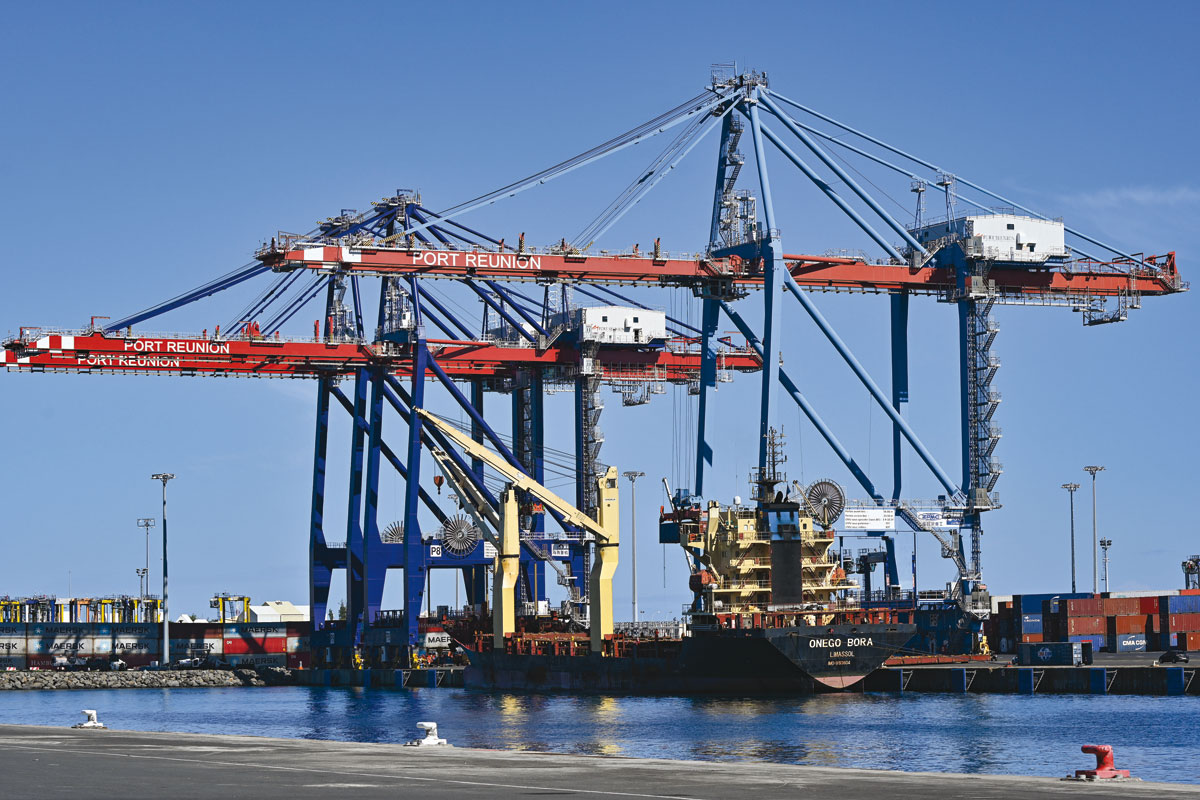
By serving the Indian Ocean from Europe without intermediate stops, Mer Union has reconnected with the maritime history of Reunion Island. How the line works : Is it regular or are ships chartered on a case by case basis depending on needs?
Mer Union rotates every two months. We leave from the port of Antwerp. The boat takes between 35 and 40 days to reach the Indian Ocean. Several parameters must be taken into account in the order of stopovers. The very heavy, which goes to the bottom of the hold for the stability of the boat, is generally intended for Reunion. Ensuite, we move towards lighter. Goods on deck will be the first to be unloaded.
Why this choice to bypass Africa via the West instead of going through the Suez Canal like other companies?
We transport dangerous goods, which generates additional costs when passing through the Suez Canal, as well as restrictions. Certain dangerous products are not accepted by the canal authorities.
This extends the transport time?
Going via the Cape of Good Hope makes us lose a few days. But we avoid the regulatory constraints that apply to the passage of the Suez Canal. Et, in view of the current situation in the Red Sea, it would be unwise to go through the canal.
Mer Union and Steinweg are located in all ports in the region?
Steinweg, Sea Union agent, has agencies in Madagascar, in Mauritius and Reunion… We have development projects in other islands in the area.
The profitability of the line is only in the direction of Europe towards the Indian Ocean, or in both directions?
Waste exports from Reunion today play the leading role in the direction from the Indian Ocean to Europe. In April, we will operate our third transport of waste from Reunion Island. We also bring goods back to Europe. Last year, in March, we chartered a boat to bring back several cranes that had been used on the island, notably the crane which was used for the new wind turbines in Sainte-Rose. And that, also imposing, having served the CNIM project for a multi-sector waste treatment center Run Eva. This operation required specific preparation. It confirmed the quality of Mer Union’s expertise and know-how for the transport of exceptional equipment.. Everything went perfectly.
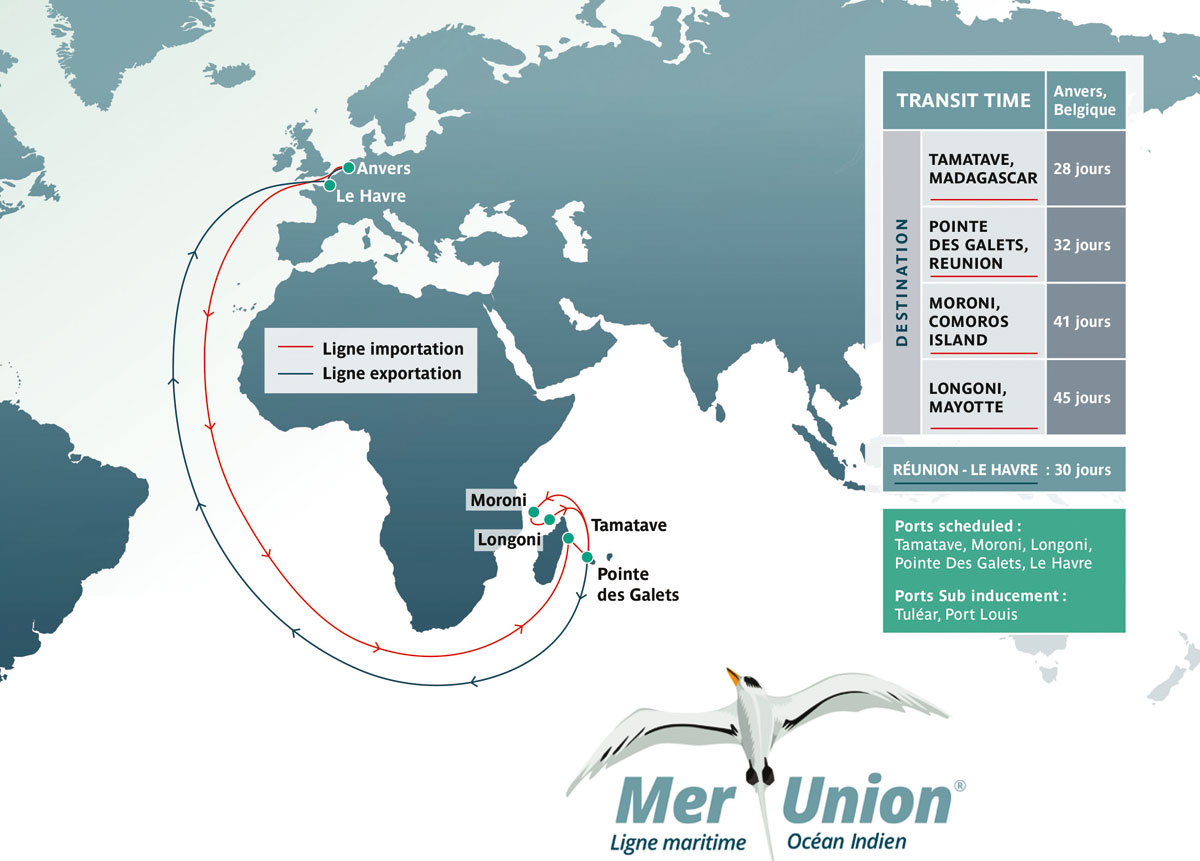
By serving Reunion Island, Madagascar, Maurice, the Comoros, Mayotte, Doesn’t Mer Union play the role of a regional shipping company??
What is meant by a regional shipping company?? Is it the fact that the State and communities invest public capital in the structure, as in Air Austral for the air? Our initial desire, with Mer Union, is to offer economic operators a service complementary to those of regular airlines, by taking advantage of the development opportunities of the Indian Ocean islands. Many companies consider it impossible for them to import or export from one island to another on a regular basis due to a lack of logistics solutions.. I am thinking in particular of the companies in Reunion who want to work in Mayotte — where everything has to be done., where construction sites are multiplying —, who are wondering what to do logistically. Mer Union makes it possible to meet these customers and offer them solutions.. We are able to provide a service that meets local demand. I would say that it is in this context that we have a regional vision. We would like to introduce companies in the Indian Ocean to this breakbulk solution..
So you only take non-containerized products…
We can take container. This is what we do with the waste export business. But we are not intended to replace regular container lines.. The objective is to position ourselves in our market niche, le breakbulk, on requests for opportunity to which regular companies will not be able to respond. We have acquired real expertise in maritime transport between the islands. We have this ability, as a small operator, to adapt to the conditions of ports in the Indian Ocean. And we have knowledge of the markets and the specificities of these territories. For that, you have to be present on the islands and meet economic operators. This is what we do at Mer Union.
There are therefore breakbulk transport flows between the islands?
We are still at the beginning of the development of Mer Union in connectivity and interaction between the islands. But on our Moroni-Longoni-pointe des Galets connection, For example, we regularly transport merchandise. These are not large volumes, but a flow is being established. We have communicated little until now about this proposal for inter-island services.. It is thanks to adapted logistics solutions that companies will be able to open up to the outside world..
Do you transport in bulk?
Bulk food, especially cereals, is not compatible with the type of equipment we transport in breakbulk. But chartering a ship exclusively for bulk, it's entirely possible.
You played a decisive role in setting up hazardous waste export operations.
It's all gone, in 2022, from a request from private operators saturated with waste that they were no longer able to export, nor to store. During this period, everyone was very worried and no longer knew how to manage waste. Their accumulation and the saturation of storage places represented an environmental risk. In relation with the Réunion Region, the prefecture and the DEAL, the Réunion Import and Trade Union called on us to find out if we could meet this need. We started the study of this waste and the conditions of its transport to mainland France and we were able to set up an organization. Mer Union has demonstrated its ability to adjust to market needs and demonstrate great flexibility by introducing a direct service linking Mayotte to Reunion Island., then to Le Havre. The distance and remoteness of Reunion and Mayotte from mainland France make the transport of goods more complex.. In order to face the difficulties encountered on our island territories, it was necessary to think about alternative solutions. Mer Union responded by offering a suitable solution which made it possible to transport more than 4,200 tonnes of waste, including 3,800 tonnes of hazardous waste in 2022, i.e. more than 300 containers of waste transported. The operation was repeated last year, and a third expedition takes place this month.
Will the export of waste become a regular activity of Mer Union??
Our ambition is to offer two boats per year. I am planning the next boat in October. For this type of operations, what is appreciated, this is Mer Union’s direct service transport solution. It avoids the administrative constraints to which regular companies which call at different ports are subject.. It takes at least six to eight months to obtain prior authorization to enter a port with waste.! With Sea Union, a company wishing to export its waste must comply with national regulations and provide a waste tracking slip.
How is this waste export specialty perceived by your parent company?, Steinweg?
We had the chance to welcome the CEO of our group, Ulf Boll, last September. Passing through Reunion, we had the opportunity to exchange. Mr Ulf Boll is a very open person, he is very favorable to taking initiative in businesses where no one takes a position, to responses to requests that we are not used to. He supports us in our desire to make Mer Union known. He is proud of our journey and encourages us to continue on this path.
How does 2024 look for Mer Union?, do you have any development projects?
We are in continuous development, particularly in West Africa and South Africa, since our line passes off the West African coast. I was in Cape Town last February, au Mining Story, the major international meeting of the mining sector, to study the opportunities that this sector can offer to increase our frequencies, currently one boat every two months. To increase the frequency of rotations, we need to increase our transported volumes. Our boats passing off the coast of West Africa, they could perfectly drop off equipment along the way, in Senegal, in Gabon, in Namibia or elsewhere. Such an increase in flows would allow us to offer more regular transport solutions in the Indian Ocean.. This is part of Mer Union’s development avenues. We are working on it. We are also awaiting the development of Total's gas exploitation project in Mozambique.. Total must make an announcement soon on the continuation of the project. What is established, it is Total’s desire to use a French rear base. otherwise, Mer Union and Steinweg will be present at the FIM, in Madagascar, from May 21 to 26. This show is the economic meeting place in the Indian Ocean, this will be an opportunity to continue to promote our inter-island activity.
Mayotte seems to be drowning in problems. You also point out a supply problem : which?
Regular lines do not have direct service between Europe and Mayotte, Mer Union represents a solution for transporting equipment and raw materials on site. But Mayotte is a department in crisis, and economic operators suffer, starting with us who are at the beginning of the chain. Added to this is the problem of the port of Longoni, which has only two unloading docks, one of which has been under construction for almost two years. This work is due to be completed by the end of the year.. But until it reopens we will be faced with the constraint of a congested port. During our last stopover, we waited four days before being able to unload.
You are at the helm of an activity that is complex to say the least.. How do you see the future of your profession??
I remain positive about the future of our profession. We have started to demonstrate this with our export vessels. Conventional service helps inter-island development, both for the transport of goods and for the transport of waste. In a second time, we remain attentive to the need for transport to and from East Africa, for which a conventional transport service is entirely suitable for the development of industrial projects.
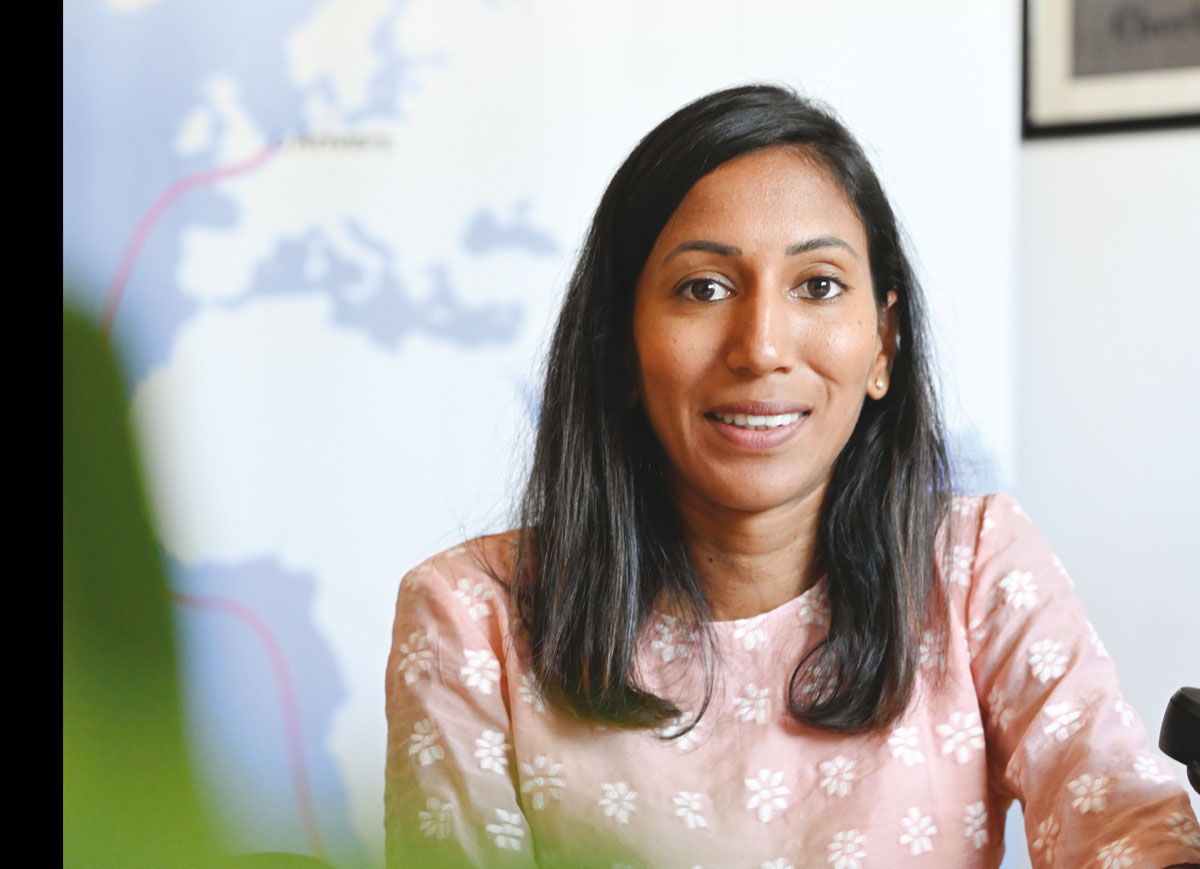
of the Steinweg group in Reunion and the region.
Christelle Goinden firstly testifies to the quality of the training at the Institute of Business Administration (IAE) Of the reunion, of which she followed one of the courses : BTS en commerce international, followed by an export assistance license, then a master's degree in management and business management.
It also demonstrates his determination to progress to achieve his objectives., car ce master, she took it in evening classes even though she had already joined the Reunion branch of the logistician Necotrans (disappeared in 2017). Christelle Goinden stayed at Necotrans Réunion for five years before being transferred to the company's headquarters in Roissy, where she was entrusted with road management for Senegal, Mali and Cameroon. She joined the Steinweg group in 2016, becoming his sales manager in Marseille. She discovers conventional transport, when she was given the opportunity in 2019 to return to Reunion Island to replace the manager of the breakbulk service. The Mer Union brand is now displayed on all activities of the Steinweg group in Reunion and in the region. Christelle Goinden-Flambard is today the agent for the Mer Union shipping line.
Comments collected by Olivier Soufflet and photos Pierre Marchal Anakaopres


